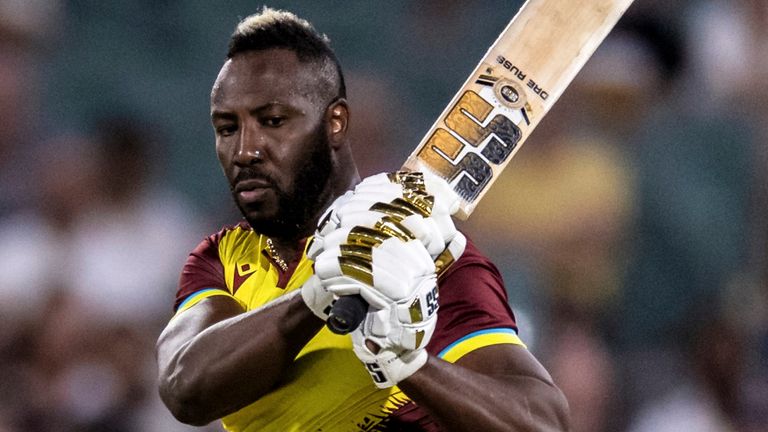Andre Russell has hit back at Virat Kohli’s recent comments about Test cricket, emphasizing the vastly different experiences of players from the West Indies compared to those from cricketing powerhouses like India, Australia, and England. Kohli described his IPL win as being “five levels under Test cricket,” a sentiment that didn’t sit well with Russell, who pointed out the challenges faced by West Indian cricketers in pursuing a Test career.
Russell, a towering figure in the world of T20 cricket, is a global superstar with a career spanning over 15 years. He is renowned for his explosive hitting, often under pressure, and has built a reputation as one of the most feared all-rounders in the shortest format of the game. Among all his memorable shots, one six in particular stands out: the massive strike off Hardik Pandya during the 2016 World Cup at Mumbai’s Wankhede Stadium. That towering hit perfectly encapsulates Russell’s power and timing, and it remains a highlight of his illustrious career.
Now 37, Russell recently arrived in Durham for the start of a T20 series against England, feeling fit and ready after another intense IPL season with Kolkata Knight Riders. Over the years, he has crisscrossed the globe playing for a host of franchise teams from Kolkata to London, Sydney to Montreal making him one of the most in-demand players in the world’s T20 leagues. His trophy cabinet includes two T20 World Cups and multiple IPL titles, achievements that place him among a select group of players who have won 10 or more T20 tournaments. Notably, three other players on that list Dwayne Bravo, Kieron Pollard, and Sunil Narine are also West Indian, highlighting a broader trend.
Russell’s response to Kohli’s remarks was grounded in the harsh realities of cricket in the Caribbean. He explained that while players in countries like India and England benefit from lucrative central contracts and robust support systems that encourage Test cricket, West Indian cricketers often face the opposite. “You might play 50 or 100 Tests and, after you retire, there’s not much to show for it,” Russell said. This disparity in support and financial security often pushes West Indian players to focus on shorter formats, where opportunities and rewards are greater.
Beyond finances, Russell acknowledged the emotional and practical factors influencing his and many others’ careers. Despite his love for the longer format and a strong belief in Test cricket’s value, he never retired from Tests he was simply “pushed out” by selectors who viewed him primarily as a white-ball specialist. This exclusion reflects broader selection and administrative issues within Cricket West Indies, which have historically been chaotic and inconsistent. Although recent reforms aim to improve the system, it’s too late for Russell’s generation.
When asked if he would trade his many sixes and franchise trophies for a longer Test career, Russell was candid. “Honestly? No,” he said. “I’m a professional. It wasn’t part of my journey, and I have no regrets because it wasn’t me that turned my back.” He remains a passionate observer of Test cricket and is particularly impressed by players like Ben Stokes and Barbados-born Jacob Bethell, who he describes as “easy on the eye” and a star for the future.
Russell also spoke about his enduring enthusiasm for cricket, stating he plans to continue playing for at least three more years. Even at 37, he feels strong and ready to contribute. One personal goal remains: he has yet to score a century in international white-ball cricket despite more than 140 matches. Achieving that milestone, he said, would be the “cherry on the cake.”
For fans watching this week’s matches, Russell’s explosive style remains a spectacle, promising more towering sixes and game-changing moments. His journey underscores the complexities of modern cricket careers, especially for talented players from regions where the sport’s traditional structures and rewards have not always aligned with players’ ambitions and financial needs.

